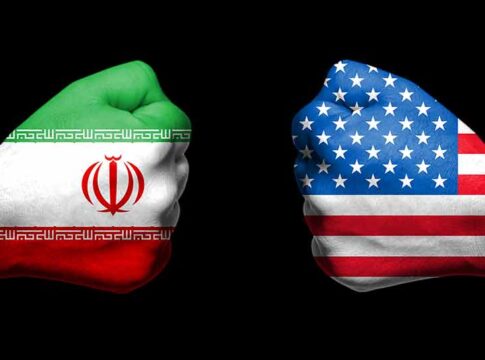Khamenei publicly supported anti-American chants during a recent speech in Tehran as U.S.-Iran nuclear talks continue. Iranian lawmakers wore Revolutionary Guard uniforms and chanted “Death to America” in parliament after the United States designated the Guard as a terrorist organization. President Trump has set a 60-day deadline to reach an agreement with Iran after the fourth round of talks.
Khamenei’s Endorsement Escalates Tensions
As the fourth round of nuclear talks between the United States and Iran concluded in Oman, Supreme Leader Ali Khamenei’s endorsement of “Death to America” chants has cast a shadow over diplomatic progress. During a speech in Tehran, Khamenei responded positively to anti-American sentiments from the crowd, reportedly saying, “Your judgment is right” when participants expressed hostility toward the United States. This public display of anti-American rhetoric comes at a critical juncture when both nations are attempting to navigate complex negotiations regarding Iran’s nuclear program.
The Iranian parliament has amplified this antagonistic stance. Following the U.S. designation of Iran’s Revolutionary Guard as a foreign terrorist organization, Iranian lawmakers donned Guard uniforms during a parliamentary session, chanting “Death to America” in a show of solidarity. President Hassan Rouhani claimed this U.S. action would only increase the Guard’s popularity among Iranians, while Khamenei dismissed American measures as ineffective against the military organization that holds significant political and economic power within Iran.
BREAKING: Ayatollah Khamenei in his sermon today, ahead of talks with the U.S., led a chant of “Death to America.”
Anyone wants this genocidal regime to have nuclear weapons is an enemy of the United States. pic.twitter.com/ATxsPEKeRl
— Eyal Yakoby (@EYakoby) May 10, 2025
Nuclear Talks Reach Critical Stage
The recent round of negotiations was described as “difficult but useful” by Iranian Foreign Ministry spokesperson Esmail Baghaei. Both direct and indirect discussions took place, with an agreement to continue technical deliberations. President Trump has established a clear timeline for these talks, setting a 60-day deadline to reach an agreement with Iran since discussions began on April 12. This deadline reflects the administration’s firm stance on addressing Iran’s nuclear capabilities promptly.
“The Iranians, like last round, sound more downcast than the U.S. side, describing talks as difficult.” Jason Brodsky, United Against Nuclear Iran
A fundamental disagreement continues to hinder progress. Iran insists on maintaining its uranium enrichment program, while the Trump administration categorically opposes this position. Special Envoy Steve Witkoff emphasized that the U.S. believes Iran should not possess enrichment capabilities or centrifuges that could enable weapon development. This represents a significant departure from the 2015 Joint Comprehensive Plan of Action (JCPOA), which President Trump withdrew from during his first term, criticizing its sunset provisions and inability to permanently prevent Iran from developing nuclear weapons.
In today’s sermon, Ayatollah Khamenei led chants of “Death to America” just a day before scheduled talks with the U.S.
Doesn’t this count as an automatic foul on the play?
Witkoff you there? pic.twitter.com/t1mOSe6pCy— The Window (@wodniweht) May 10, 2025
International Reactions and Regional Implications
The U.S. designation of Iran’s Revolutionary Guard as a terrorist organization has elicited mixed responses internationally. Saudi Arabia, Iran’s regional rival, supported the decision, characterizing it as a “serious and practical step to combat terrorism.” In contrast, China called for restraint, urging parties to “promote peace and stability … and avoid actions that may lead to further escalation of the situation.” These divergent reactions highlight the complex geopolitical considerations surrounding U.S.-Iran relations.
The ongoing tension complicates U.S. relations in the broader Middle East, particularly in Iraq and Lebanon, where Iran maintains significant influence. As President Trump prepares for a historic Middle East tour, the success or failure of these nuclear negotiations will likely shape America’s strategy throughout the region. Experts note that for Iran, the negotiation process itself provides economic breathing room and a form of military protection, potentially explaining their willingness to continue talks despite apparent pessimism about outcomes.


